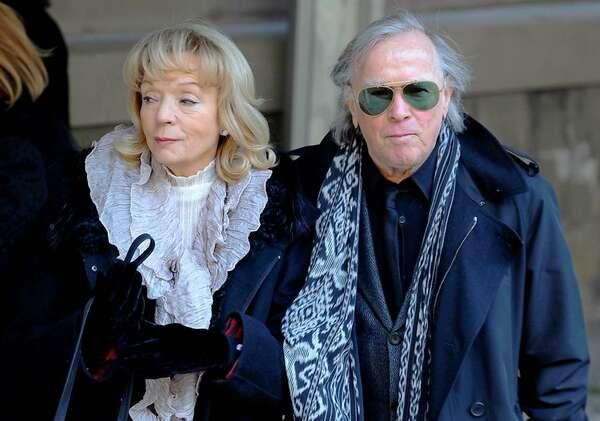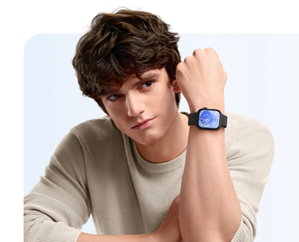
Mr. Schönenborn, what does Westdeutscher Rundfunk, the largest broadcaster in the ARD network, want to do better in 2022 than in the previous year? Still the best content and much smarter distribution - that's my compass for this year. When it comes to the good, or sometimes the best, content, we've always had something to offer. The two most successful "Tatort" series, Münster and Cologne, are celebrating their 20th and 25th birthdays with strong films.
We have plans with Carolin Kebekus, Eckart von Hirschhausen and others. Our news brands "Tagesschau" and "WDR aktuell" are striking ever deeper roots with younger people. We are able to do this with new digital formats such as the TikTok channel "nicetoknow", which, by the way, is being created in cooperation with a school class. In 2022, I would like us to further strengthen our range of information for those whom we no longer reach well with classic public service news. So, a lot is going well with the content.
[If you want the latest news from Berlin, Germany and the world live on your cell phone, we recommend our app, which you can download here for Apple and Android devices.]
And where are things going less well? We want to get even better at digital distribution. This includes handling usage data so that we can reach audiences everywhere on the web. In the digital world, the best content can otherwise fade away completely. That's why I was very committed to the topic on ARD. Some were surprised that a program maker takes care of "metadata" and "artificial intelligence". But it was important to me to create understanding for it.
I know the concern that data could anticipate program decisions, that decisions are no longer made according to journalistic criteria. On the contrary, it is about data-informed work. Anyone who decides must know the habits and interests. Otherwise we won't be able to make a digital offer for everyone. Now a team is starting at WDR that will also take care of it for ARD. In the end, there should be a kind of public-law algorithm for the media library.
What do you mean by that? I want an intelligent recommendation logic that doesn't always just suggest what is familiar and familiar, but rather broadens the horizon, sometimes suggesting things I wouldn't have chosen myself, things that are tiring or irritating. The algorithms of the American platforms trap the audience in bubbles.
Our public service mandate is to burst these bubbles. This is only possible if we can determine what is found and recommended on our own platform. Only then does the audience have a chance to see the whole picture. That's why I want to push the topic further in the ARD.
Many in Germany are concerned about social cohesion, about a society that is divided over the question of whether to vaccinate or not to vaccinate. What can the media really do to turn the drifting apart into a convergence? This concern also worries me. Luckily, in our country, especially in the public sector, we still have programs that are used on both sides of the ditch. As WDR and ARD, we continue to reach almost everyone in society. This distinguishes us from the USA, for example, where the public is just as divided as society and lies are simply called "alternative facts". Our big chance is to organize the exchange of arguments. Of arguments, mind you, not of opinions.
You can spend days telling each other that you are for or against vaccination. That doesn't get anyone anywhere. It is our role to demand arguments and to compare them with all available facts. Especially when it comes to vaccinations, we experience that convincing with arguments is difficult but possible.
For me, "best content" also means repeatedly pointing out the fault lines in society, sounding out arguments and analyzing the causes. I firmly believe that this is how society can be held together.
The talk show is the preferred conversation format of public service television. Is that enough or do new formats have to be found? Is that your impression? My impression is that we tend to use longer interviews much more than we used to: in the morning magazine, in the daily topics or in the WDR in the current hour. This is often excellent. And with Sandra Maischberger, the focus of the program is now a long conversation, listening, asking questions, sometimes nagging. The half-hour conversation with Armin Laschet touched me. But you're right, the talk show is very popular with sections of the audience. In the best-case scenario, what I just described happens there. Arguments are exchanged and occasionally bridges are built.
"Hard but fair" is about to be published for the 500th time. A long way has been covered. What has "Haf" achieved that only this format could achieve? "Hard but fair" was the perspective from the provinces at the time. Talk shows were called like their horizon: Berlin-Mitte. They took place under domes, in closed rooms. "Hard but fair" had shown on WDR television that there is another way. It wasn't just politicians and experts - yes, mostly men back then - who were sitting at the table, but also people who were affected by the problems themselves. Feature films brought pictures from reality. And reactions from the audience were not annoying, but desired and an integral part of the show.
But the most important thing: "Hard but fair" has afforded the view from the "province" of the capital's politics and not just self-reflection. Incidentally, I still remember how annoyed Frank Plasberg was when the others gradually adopted elements such as the films. But being copied is also a compliment.

Anne Will" has been running since 2007, "Maischberger" since 2003, "Hart aber fair" since 2001, "Maybrit Illner" since 1999. Where is the innovation, where is the departure? Was the WDR format "Friday Night Jews" with the talks at the dining table about Jewish life isn't it an innovation? And of course we are developing other talk formats for the digital world, which also appeal to younger people in a completely different way. On television, it's also a strength if you've been part of the viewing habits for decades.
The "Frühschoppen", which today is called "Presseclub", has just turned 70, the "Tagesschau" is still 70, the "Tatort" is over 50, hard but fair 21. Nothing today looks like the first day. Maischberger has a new, very successful concept. In important phases of the pandemic, tough but fair consisted largely of questions from the audience, longer reports and information blocks. The show was always versatile.
A lot is happening in the first, for example, the "Weltspiegel" will start on Sundays at 6:30 p.m. instead of 7:20 p.m. Are there any major innovations in the reform package that stand out? In the reform debate, I was primarily concerned with science in addition to foreign countries. We're falling short of our potential. Editors like "Quarks" from WDR have great knowledge offers in their own channels, often strong documentaries. We are now taking this step on ARD.
We are creating a joint, strong range of knowledge in the form of documentaries that will certainly find their - including younger - audiences. As ARD, we are developing into a content network. Media library and linear program have become a game over two grand pianos.
More than ever, the broadcasters will have to play in two worlds: the linear one with programs according to the scheme and the streamed one in the media libraries. Which offer goes where? This is the key to success: distributing the right offer in the right channel. We prefer to get them all into the media library, but many will continue to expect our offers on social media. Good dissemination is a concert of all avenues at our disposal. The ARD media library is and will remain our largest showcase with more content than any other platform. Because there the boundaries between the first and third programs, between regional and national offers, have completely broken down.
Currently popular on Tagesspiegel Plus:
A documentary series like "Feuer und Flamme" about the fire brigade in Bochum comes from WDR television and is suddenly the lead in the national media library. No one has such a deep and varied range of offers from the regions as the ARD. We will emphasize this even more as a contribution to federal cohesion.
The ARD media library competes with streaming services such as Netflix or Amazon Prime - can a German public service platform keep up with these competitors? With the media library, we focused first and foremost on fiction, the genre that characterizes platforms. As coordinator for this area, I pushed in 2018 to convert some of the classic television films into mini-series and multi-parts. That was a fundamental decision.
At the start of the new media library in 2020, we had the strength for a strong series offensive. "Oktoberfest 1900", "Our Wonderful Years" and "The Secret of the Dead Forest" were among the first ten million sellers in terms of hits. Now we have to follow suit with documentaries. We have a large variety of productions on ARD, which are often still intended too much for linear television. We're changing that.
Can you imagine that ARD would not broadcast the usual Winter Olympics in Beijing and the World Cup in Qatar? Nowhere else in recent years have you had so many well-researched reports about the scandal under construction in Qatar or about total control in China see and hear like we do. The investigative aspect is one of ARD's strengths and we at WDR in particular once created a format for such topics with "Sport inside".
If you rightly ask what legitimacy these tournaments have, that is also the result of our reporting. That's why we're going to do both: cover the competitions, because millions of people across society want to see it and expect it in return for their broadcast. And follow the whole thing very critically.
But one thing is also clear: the IOC and Fifa must change their course, otherwise they will lose social acceptance for their events.
Which brings us to "attitude journalism". A combat term for you? If attitude means choosing arguments, perspectives, interlocutors according to personal opinion, but fooling the audience into impartiality, the word attitude is misused. In my perception, however, the sensitivity to bias has grown in recent years. Ultimately, each and every one of us is biased. Journalism is the profession of recognizing this and ignoring it at work.
The Nemi El-Hassan case in retrospect: what did the broadcaster do wrong, what conclusions were drawn from it? Every journalist can learn something from it. Anyone who posts privately on social media is always in a public space. Everything you write privately can have repercussions on your journalistic work. And deleting a lot is just not out of the world. Before you post, you should consider whether what you want to say is clear. Do you really mean what you said? And whether you can still stand by it later.
more on the subject
Talk without Lauterbach is possible, but pointlessThe talk shows now have to mourn...
Joachim HuberWe at WDR are learning from this that we need to talk to each other more intensively before we can work together. In the end, however, we must also be able to trust what we are told. Unfortunately, that was not the case in all respects. I was struck by the hateful attacks on Nemi El-Hassan. That's not how you treat each other.







